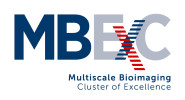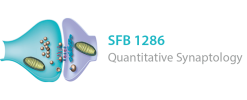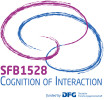© Pint of Science, 2025. Alle Rechte vorbehalten.
In this exciting event, the speakers will bring us on a journey exploring how prosthetics can mimic the natural function of limbs and provide a sense of touch and proprioception, addressing the challenges faced when these sensory capacities are lost due to limb loss and understanding how neurons communicate and process information in our complex nervous system, using the sense of hearing as an example to understand the intricate workings of neurons in our bodies Come and join us in this adventure!
Of artificial sensory feedback - Reconstructing lost tactile and proprioceptive sensations
M.Sc. Romain Valette
(Ph.D. student, Ottobock, Aalborg University)
Our bodies are designed with an intricate system of sensors, receptors, and nerves that allow us to sense and respond to our surroundings with incredible finesse and accuracy, and adapt the strength to the needs of the situation. Once a limb is lost, this entire control, touch and proprioception capacities leave with it.
Suddenly, the simple acts of taking the stairs, walk in the sand or even stand upright are becoming daunting tasks. How can we create prosthetics that can mimic the natural function of our limbs and provide a sense of touch and proprioception?
Suddenly, the simple acts of taking the stairs, walk in the sand or even stand upright are becoming daunting tasks. How can we create prosthetics that can mimic the natural function of our limbs and provide a sense of touch and proprioception?
Do neurons play Chinese whispers?
M.Sc. Sabina Nowakowska
(PhD student, Max Planck Institute for Multidisciplinary Sciences)
There are millions of neurons in our bodies forming a complex network. Some of them lie in the periphery taking record of what’s happening around, while others sit at the headquarters deciding how to respond to the stimuli. How do the neurons communicate with each other? How do they process the information collected from the environment? What methods do we use to investigate it? I will attempt to answer these questions in my talk using the sense of hearing as an example.
© die Mitwirkenden OpenStreetMap



